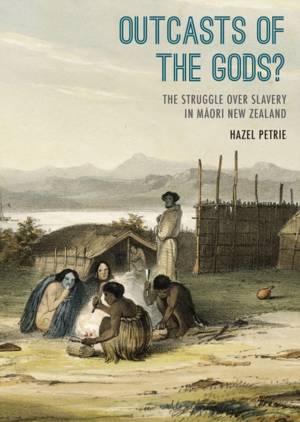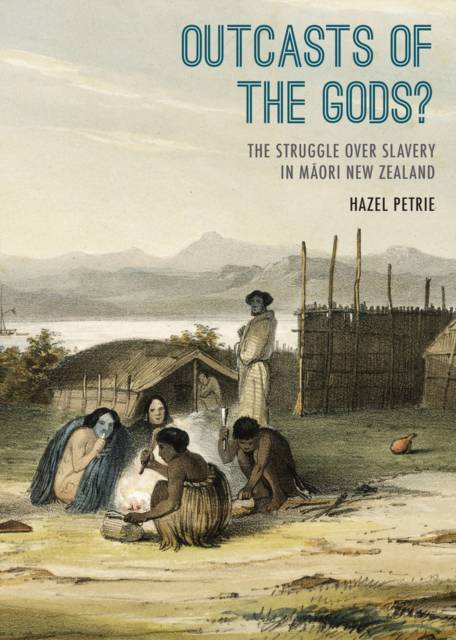
Bedankt voor het vertrouwen het afgelopen jaar! Om jou te bedanken bieden we GRATIS verzending (in België) aan op alles gedurende de hele maand januari.
- Afhalen na 1 uur in een winkel met voorraad
- In januari gratis thuislevering in België
- Ruim aanbod met 7 miljoen producten
Bedankt voor het vertrouwen het afgelopen jaar! Om jou te bedanken bieden we GRATIS verzending (in België) aan op alles gedurende de hele maand januari.
- Afhalen na 1 uur in een winkel met voorraad
- In januari gratis thuislevering in België
- Ruim aanbod met 7 miljoen producten
Zoeken
Outcasts of the Gods?
The Struggle Over Slavery in Maaori New Zealand.
Hazel Petrie
Paperback | Engels
€ 68,45
+ 136 punten
Omschrijving
'Us Maoris used to practice slavery just like them poor Negroes had to endure in America . . .' says Beth Heke in Once Were Warriors. 'Oh those evil colonials who destroyed Maori culture by ending slavery and cannibalism while increasing the life expectancy, ' wrote one sarcastic blogger. So was Maori slavery 'just like' the experience of Africans in the Americas and were British missionaries or colonial administrators responsible for ending the practice? What was the nature of freedom and unfreedom in Maori society and how did that intersect with the perceptions of British colonists and the anti-slavery movement? A meticulously researched book, Outcasts of the Gods? looks closely at a huge variety of evidence to answer these questions, analyzing bondage and freedom in traditional Maori society; the role of economics and mana in shaping captivity; and how the arrival of colonists and new trade opportunities transformed Maori society and the place of captives within it.
Specificaties
Betrokkenen
- Auteur(s):
- Uitgeverij:
Inhoud
- Aantal bladzijden:
- 384
- Taal:
- Engels
Eigenschappen
- Productcode (EAN):
- 9781869408305
- Verschijningsdatum:
- 1/12/2015
- Uitvoering:
- Paperback
- Formaat:
- Trade paperback (VS)
- Afmetingen:
- 165 mm x 229 mm
- Gewicht:
- 657 g

Alleen bij Standaard Boekhandel
+ 136 punten op je klantenkaart van Standaard Boekhandel
Beoordelingen
We publiceren alleen reviews die voldoen aan de voorwaarden voor reviews. Bekijk onze voorwaarden voor reviews.









